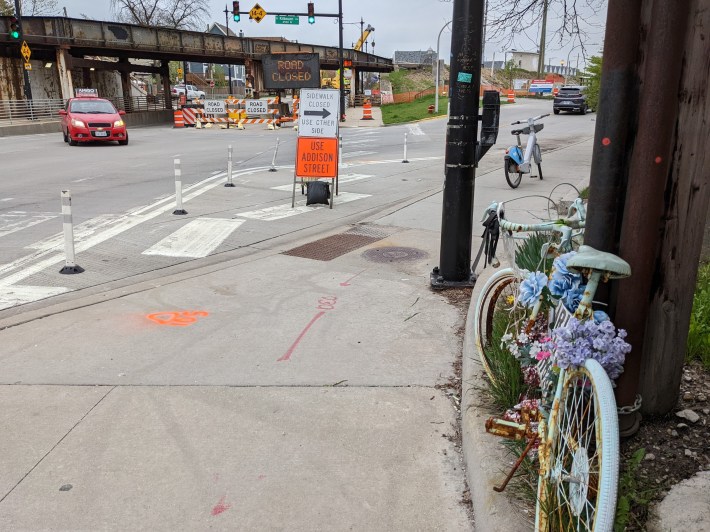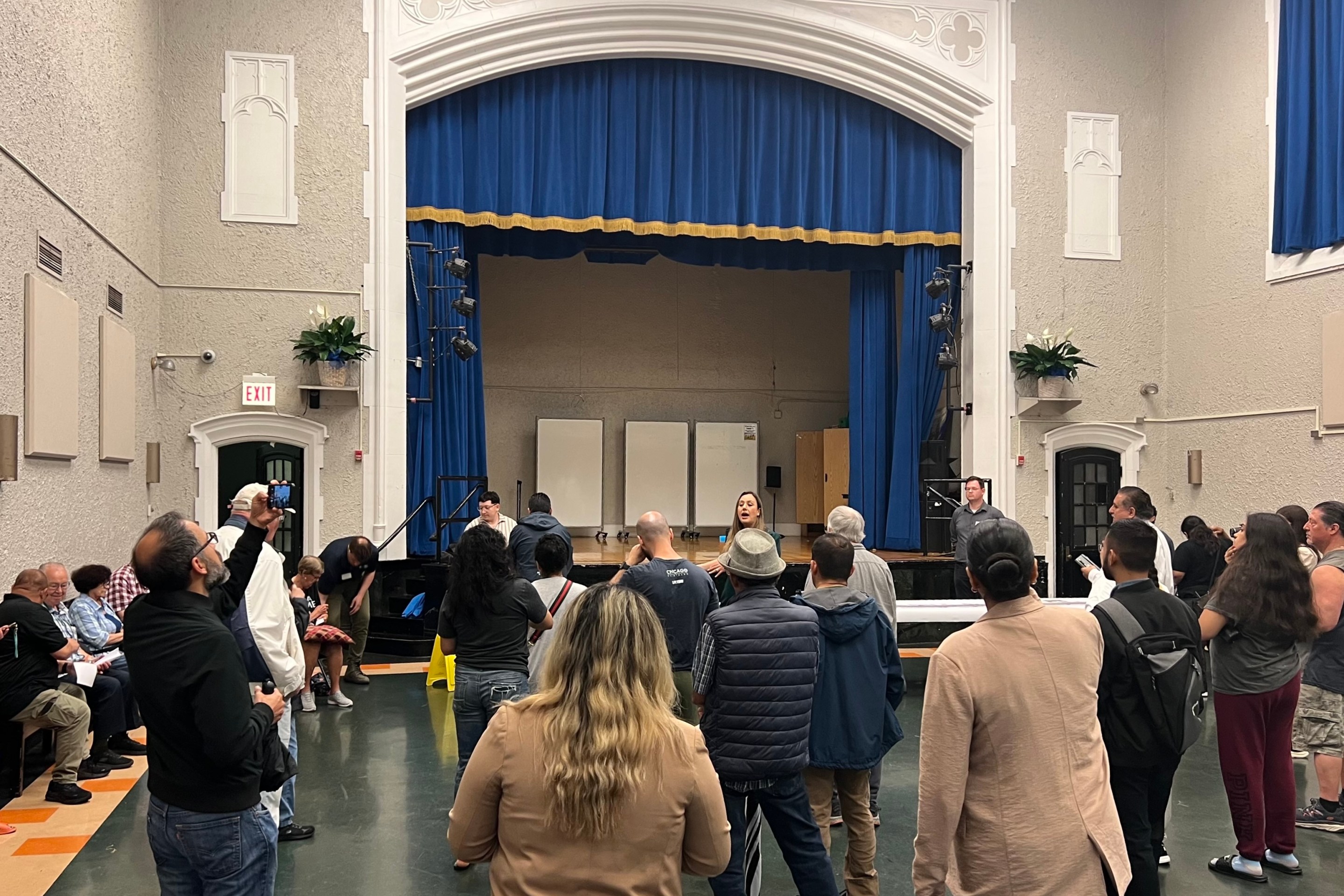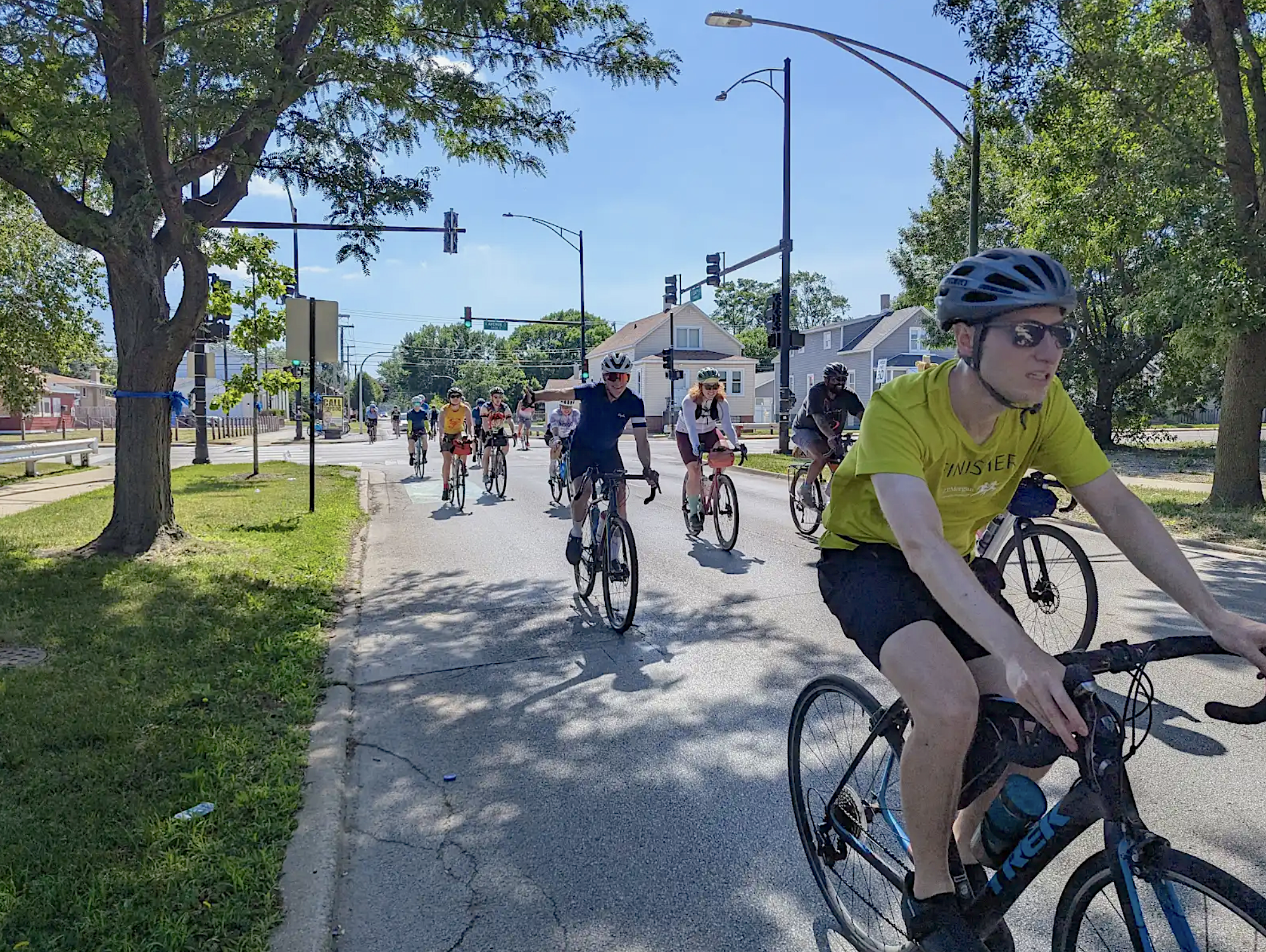On May 4, 2022, a driver fatally struck Nick Parlingayan, 22, on his bike near the intersection of Milwaukee and Kilbourn avenues in the Irving Park neighborhood, and leaving without aiding the barista. A wrongful death lawsuit, recently filed on behalf of Parlingayan’s family, argues that Metra and the city of Chicago, along with the driver, bear responsibility for the fatal crash.
The lawsuit, filed by the law firm of Salvi, Schostok and Pritchard, argues that the $32 million project to rebuild the Milwaukee Avenue bridge for a Canadian Pacific Railroad line was a factor in Parlingayan’s death. The rail line is used by Metra’s Milwaukee District North route, and the commuter system’s Grayland station is located at the south end of the bridge. Jersey barriers under the bridge on the northwest-bound side of Milwaukee created a pinch point, forcing drivers to travel in the painted bike lane. Delivery driver Philip Pinkawa, traveling at a high speed in his Nissan Versa, struck Parlingayan as he was biking northwest on Milwaukee, dragging bicycle and rider more than fifty feet, and fled the scene.
Pinkawa later turned himself in to police and was charged with one felony count of failure to report a crash resulting in a death. Paramedics found Parlingayan lying unconscious in the street. He was transported to Illinois Masonic Medical Center, where he was pronounced dead.
According to the lawsuit, Metra; TranSystems Corporation, the engineering firm that designed the project; the city of Chicago, which approved the plans; and IHC Construction, which oversees the site, had a shared duty to ensure any changes to traffic during construction was safe for all road users. The suit states that the municipalities and companies involved created an unsafe situation by failing to provide adequate travel accommodations, warning signage for bikes and drivers, and alternative routes for bicyclists. Pinkawa and his employer Di Vita’s Restaurant are also named as defendants.
Brian Salvi, the Parlingayan family’s attorney, said that the construction site was “inherently and unnecessarily dangerous. A number of entities had their fingerprints on creating that situation,” he said in a phone interview. “The senselessness that caused Nick’s death requires accountability, otherwise it’s just going to happen to somebody else.”
Salvi stated that his firm had submitted several Freedom of Information Act requests about the design and implementation of the construction area to Metra, but the agency would only answer a few requests at a time, dragging out the research process. Filing suit, Salvi said, would ideally hold all responsible parties to account while compelling Metra to respond to all FOIA requests.

Parlingayan was the second person on a bicycle killed at the Milwaukee/Kilbourn intersection in less than three years. In 2019, school guidance counselor Carla Aiello, 37, was fatally struck by a dump truck driver who failed to yield while turning left from Milwaukee onto Kilbourn. Since Parlingayan’s death, curb- and parking-protected bike lanes have been installed on Milwaukee Avenue between Addison and Kostner, but terminate about two blocks south of both crash sites. Construction of the bridge is still underway. Currently, both lanes of traffic under the viaduct are closed, with non-local northwest-bound traffic detoured at Addison.
Parlingayan’s family is seeking monetary compensation along with funeral and burial expenses. Salvi said the intent of the lawsuit is to put pressure on agencies to create safe conditions around construction sites and prevent similar tragedies in the future. “The hope and expectation is that if we’re successful—regardless of what that means from a monetary perspective—it reminds the construction company and Metra and CDOT the next time they change an area, they need to understand the implications of everyone who might encounter that area, and make sure they’re being reasonably careful to reduce the probabilities that someone might be hurt.”
In a press release, Parlingayan’s mother, Mary “Gigi” Geraldin Alegarbes said, “I can only hope this lawsuit holds those responsible accountable and prevents another family from experiencing the unimaginable pain we have felt this past year.”
Spokespersons for Metra and the Chicago Department of Transportation declined to comment.






